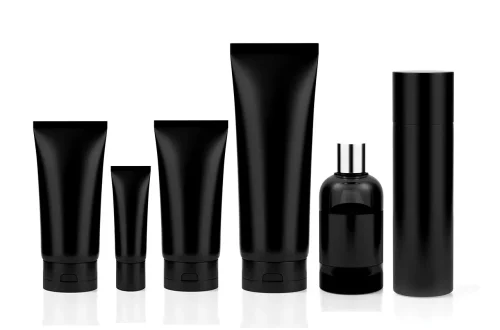
The Benefits of Plant Based Hair Dye for Vibrant, Healthy Hair
The quest for vibrant, healthy hair has led many individuals to explore various hair dye options. As the beauty industry evolves, a notable shift towards plant-based hair dyes is gaining traction among consumers. Unlike traditional hair coloring products that often contain harsh chemicals, plant-based alternatives offer a gentler, more natural approach to achieving beautiful hair. These dyes are derived from natural ingredients such as herbs, flowers, and fruits, providing a spectrum of colors without the damaging effects of synthetic components.
In a world increasingly aware of the impact of chemicals on both personal health and the environment, the benefits of using plant-based hair dye become even more compelling. Not only do these dyes cater to those with sensitivities or allergies to conventional products, but they also align with a growing lifestyle choice that prioritizes sustainability and ethical sourcing. As we delve deeper into the advantages of plant-based hair dyes, it becomes clear that they promote not only aesthetic appeal but also contribute to the overall health and vitality of hair.
Natural Ingredients for Healthier Hair
One of the standout benefits of plant-based hair dyes is their formulation with natural ingredients. Unlike conventional hair dyes that may contain ammonia, parabens, and other harsh chemicals, plant-based options utilize botanical extracts and pigments derived from nature. Ingredients like henna, indigo, and beetroot provide rich colors while nurturing the hair.
Henna, for example, has been used for centuries to impart a beautiful reddish-brown hue. It not only colors the hair but also conditions it, making strands smoother and shinier. The natural properties of henna can also help to strengthen hair, reducing breakage and promoting healthier growth. Indigo is another natural dye that can create dark tones and works in synergy with henna for a range of shades.
Additionally, plant-based dyes often include nourishing agents such as aloe vera, argan oil, and coconut oil. These ingredients provide hydration, improve manageability, and add shine to the hair. The absence of synthetic chemicals means that users are less likely to experience adverse reactions, making plant-based dyes an excellent choice for individuals with sensitive scalps or skin.
Overall, the use of natural ingredients in plant-based hair dyes not only enhances the color but also contributes to the long-term health of the hair. This dual benefit makes them a superior option for those seeking both vibrant hues and strong, resilient locks.
Environmentally Friendly Choices
In today’s environmentally conscious society, choosing products that are eco-friendly is more important than ever. Plant-based hair dyes stand out in this regard, as they are typically formulated with sustainable practices in mind. Many brands prioritize organic farming techniques, ensuring that the ingredients are cultivated without harmful pesticides or synthetic fertilizers.
Furthermore, the production of plant-based dyes generally results in less environmental pollution compared to their chemical counterparts. Traditional hair dyes can release toxic substances into the air and water systems during manufacturing and after disposal. In contrast, natural dyes decompose more readily and are less likely to contribute to environmental degradation.
Choosing plant-based hair dyes also aligns with a growing consumer demand for cruelty-free products. Many of these dyes are not tested on animals, reflecting a commitment to ethical practices in the beauty industry. By selecting plant-based options, consumers contribute to a more sustainable and humane approach to hair care.
Additionally, many brands that produce plant-based hair dyes are often committed to reducing their carbon footprint through eco-friendly packaging and responsible sourcing of ingredients. This holistic approach not only benefits the environment but also resonates with consumers who value transparency and sustainability in their beauty purchases.
In summary, opting for environmentally friendly plant-based hair dyes is a proactive choice for individuals looking to minimize their ecological impact while still achieving stunning hair color.
Versatile Color Options
Another compelling advantage of plant-based hair dyes is the wide range of color options available. While traditional dyes often come in a limited palette and may require harsh processing to achieve vibrant results, plant-based dyes offer a more diverse spectrum of shades derived from various natural sources.
For instance, henna can provide shades that range from auburn to deep mahogany, depending on the application method and the hair’s natural base color. Similarly, mixing different plant-based dyes can yield unique and custom shades, allowing for greater creativity in hair coloring.
Moreover, many users find that plant-based dyes allow for a more gradual and natural-looking color transition. Instead of the stark contrasts that can come from chemical dyes, plant-based options tend to blend more seamlessly with the natural hair color. This is particularly appealing for those who want to cover gray hair without the harshness of traditional coloring methods.
The longevity of plant-based dyes is another plus. Although they may not last as long as some synthetic dyes, they often fade more gracefully, reducing the need for frequent touch-ups. This can be a significant benefit for individuals who prefer a more low-maintenance hair care routine.
As the beauty landscape continues to embrace individuality and self-expression, plant-based hair dyes provide the flexibility to explore a wide array of colors while maintaining the health and integrity of the hair.
Promoting Healthy Scalp and Hair Growth
The benefits of plant-based hair dyes extend beyond mere aesthetics; they also play a crucial role in promoting a healthy scalp and stimulating hair growth. Many natural ingredients used in these dyes possess beneficial properties that can enhance scalp health, an essential factor for thriving hair.
For example, herbal extracts such as neem and amla are often included in plant-based formulations. Neem is known for its antifungal and antibacterial properties, helping to keep the scalp free from infections and dandruff. Amla, rich in Vitamin C and antioxidants, is celebrated for its ability to strengthen hair follicles, improve blood circulation in the scalp, and encourage hair growth.
Additionally, the moisturizing properties of oils used in plant-based dyes can soothe and nourish the scalp. A well-hydrated scalp is less prone to dryness and irritation, which can lead to hair thinning and loss. The natural ingredients in these dyes help to create an optimal environment for hair growth, countering issues like hair fall and promoting thicker, healthier hair.
Moreover, using plant-based dyes can reduce the chemical load on the hair and scalp, which is particularly beneficial for those who color their hair frequently. By opting for a gentler approach, individuals can maintain a vibrant look without compromising the health of their hair.
In conclusion, plant-based hair dyes offer an array of benefits that extend well beyond color. They contribute to a healthy scalp, stimulate hair growth, and ensure that hair remains vibrant and resilient.
As a final note, while this article discusses the advantages of plant-based hair dyes, it is important to remember that individual reactions can vary. If you have any health concerns or specific sensitivities, it is advisable to consult a healthcare professional before making changes to your hair care routine.




